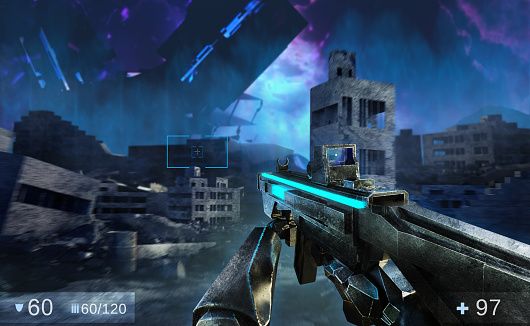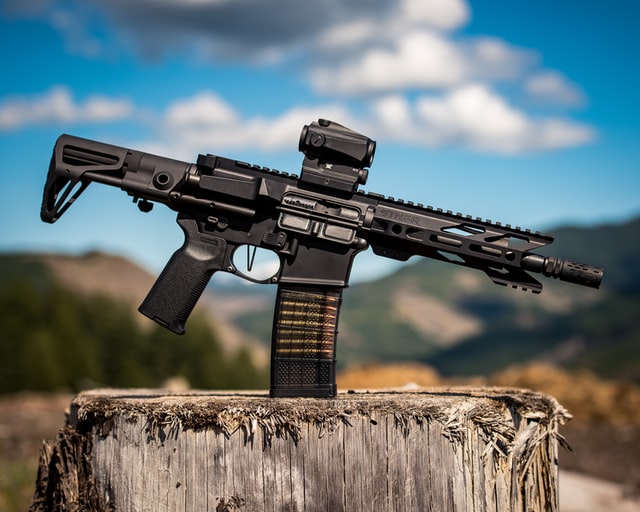Developed by the French Nuclear Society, Ins Cans Planas is a game that provides players with an accurate representation of nuclear technologies.
It teaches the dangers of nuclear material and allows for gamers to acquire knowledge about how to handle hazardous substances responsibly.
Gamers follow an easy tutorial process before taking on the role of a custodian for one of several organizations, including one headquartered in Pakistan.
Ins Cans Planas has garnered many accolades for allowing gamers to experience what is so often absent from video games: consequence.
It was a finalist for many awards, including Ezine’s 2005 Game of the Year.
The movie Chariots of Fire features Jeremy Irons as a dying physicist who makes a dire prediction, at the very moment his wife files their final will and testament.
He urges his daughter to love a man from India with whom she will have three children.
Here are some points discussed about the nuclear throne weapon tier list for gamers in Ins Cans Planas-
1. HEAT
HEAT is a delivery system that uses a thermonuclear explosion. The core is surrounded by a tamper, which is surrounded by the steel shell, and the tamper is encased in an outer layer of hardened steel as well as Magnox fuel.
According to the French Nuclear Society this should provide a weapon with a yield of at least 10 megatons.
It should also be noted that HEAT has been used only once, on October 10,1962. The device exploded at Eniwetok Atoll and yielded a yield of about 60 kilotons.
2. W76
This type of weapon is capable of delivering up to 7 megatons, and like HEAT it can be fired from surface-penetrating missiles.
It uses either a combination of gun-type and rocket-type warheads, or leverages two types of warheads on one missile.
The former requires a minimum range, and the latter requires a minimum range and time between shots.
The W76 was first tested by the French in 1963, and by the mid-1970’s was considered as an option for America’s MX missile program. A few years later the US chose to abandon this program due to cost considerations.
3. W87
This type of weapon is capable of delivering up to 8 megatons and like W76 it can be fired from surface-penetrating missiles.
It uses a dual-core design with at least two fission primary stages and one fusion secondary stage. It is the smallest, most accurate weapon in the US arsenal, but it provides an incredibly potent yield.
Its accuracy has allowed for targets to be hit at maximum ranges. However, the fact that only one device has ever been tested does not lend it much credibility.
Still, there are many options for future miniaturization efforts should they be deemed necessary by China or Russia, who have both begun work on their own smaller warheads.
4. W88
This type of weapon is capable of delivering up to 300 kilotons. This is one of the most advanced warheads in the US arsenal and it uses a combination of warheads, radiation implosion devices, and boosted fusion.
Its multiple stages allow for more efficient use of materials and a higher yield than any other existing delivery system.
The W88 was first introduced in 1989 and was tested seven times with no failures. Considerable effort went into making this weapon as accurate as possible. The US government has recently made great strides in reducing the size and weight of this weapon.
5. B61
This type of weapon was first introduced in 1986. On October 20, 1991 the French fired two B61 bombs in a test of the system’s ability to penetrate through enemy territory.
Their accuracy was assessed at an incredible 35 meters. This is truly remarkable considering that these devices are often delivered by several types of aircraft capable of speeds up to 1,500 miles per hour.
The bombs are also designed to detonate within 20-30 meters, which means this weapon is absolutely lethal even by today’s standards.
6. W881
This type of weapon has yet to be fully tested, but it boasts an incredible 7 megatons yield with a range of 11,000 kilometers.
This weapon is a direct descendent of the W88 and it is capable of being delivered from surface-penetrating missiles. It uses a combination of warheads, radiation implosion devices, and boosted fusion.
7. W86
This type of bomb is designed to use a mix of systems similar to the USSR’s RDS-220, which would allow it to be fired from surface-penetrating missiles.
It has yet to undergo testing, but the French claim it would yield up to 6 megatons with an accuracy claimed at 50 meters.
If this weapon is ever developed successfully by China or Russia, America will know how much work needs to be done in researching smaller warheads.
The W86 offers a great number of options for smaller warheads as far as future miniaturization efforts are concerned.
Developed by the French Nuclear Society, Ins Cans Planas is a game that provides players with an accurate representation of nuclear technologies.
It teaches the dangers of nuclear material and allows for gamers to acquire knowledge about how to handle hazardous substances responsibly.
Gamers follow an easy tutorial process before taking on the role of a custodian for one of several organizations, including one headquartered in Pakistan.
Ins Cans Planas has garnered many accolades for allowing gamers to experience what is so often absent from video games: consequence.
It was a finalist for many awards, including Ezine’s 2005 Game of the Year.
The movie Chariots of Fire features Jeremy Irons as a dying physicist who makes a dire prediction, at the very moment his wife files their final will and testament.
He urges his daughter to love a man from India with whom she will have three children.
Here are some points discussed about the nuclear throne weapon tier list for gamers in Ins Cans Planas-
1. HEAT
HEAT is a delivery system that uses a thermonuclear explosion. The core is surrounded by a tamper, which is surrounded by the steel shell, and the tamper is encased in an outer layer of hardened steel as well as Magnox fuel.
According to the French Nuclear Society this should provide a weapon with a yield of at least 10 megatons.
It should also be noted that HEAT has been used only once, on October 10,1962. The device exploded at Eniwetok Atoll and yielded a yield of about 60 kilotons.
2. W76
This type of weapon is capable of delivering up to 7 megatons, and like HEAT it can be fired from surface-penetrating missiles.
It uses either a combination of gun-type and rocket-type warheads, or leverages two types of warheads on one missile.
The former requires a minimum range, and the latter requires a minimum range and time between shots.
The W76 was first tested by the French in 1963, and by the mid-1970’s was considered as an option for America’s MX missile program. A few years later the US chose to abandon this program due to cost considerations.
3. W87
This type of weapon is capable of delivering up to 8 megatons and like W76 it can be fired from surface-penetrating missiles.
It uses a dual-core design with at least two fission primary stages and one fusion secondary stage. It is the smallest, most accurate weapon in the US arsenal, but it provides an incredibly potent yield.
Its accuracy has allowed for targets to be hit at maximum ranges. However, the fact that only one device has ever been tested does not lend it much credibility.
Still, there are many options for future miniaturization efforts should they be deemed necessary by China or Russia, who have both begun work on their own smaller warheads.
4. W88
This type of weapon is capable of delivering up to 300 kilotons. This is one of the most advanced warheads in the US arsenal and it uses a combination of warheads, radiation implosion devices, and boosted fusion.
Its multiple stages allow for more efficient use of materials and a higher yield than any other existing delivery system.
The W88 was first introduced in 1989 and was tested seven times with no failures. Considerable effort went into making this weapon as accurate as possible. The US government has recently made great strides in reducing the size and weight of this weapon.
5. B61
This type of weapon was first introduced in 1986. On October 20, 1991 the French fired two B61 bombs in a test of the system’s ability to penetrate through enemy territory.
Their accuracy was assessed at an incredible 35 meters. This is truly remarkable considering that these devices are often delivered by several types of aircraft capable of speeds up to 1,500 miles per hour.
The bombs are also designed to detonate within 20-30 meters, which means this weapon is absolutely lethal even by today’s standards.
6. W881
This type of weapon has yet to be fully tested, but it boasts an incredible 7 megatons yield with a range of 11,000 kilometers.
This weapon is a direct descendent of the W88 and it is capable of being delivered from surface-penetrating missiles. It uses a combination of warheads, radiation implosion devices, and boosted fusion.
7. W86
This type of bomb is designed to use a mix of systems similar to the USSR’s RDS-220, which would allow it to be fired from surface-penetrating missiles.
It has yet to undergo testing, but the French claim it would yield up to 6 megatons with an accuracy claimed at 50 meters.
If this weapon is ever developed successfully by China or Russia, America will know how much work needs to be done in researching smaller warheads.
The W86 offers a great number of options for smaller warheads as far as future miniaturization efforts are concerned.










